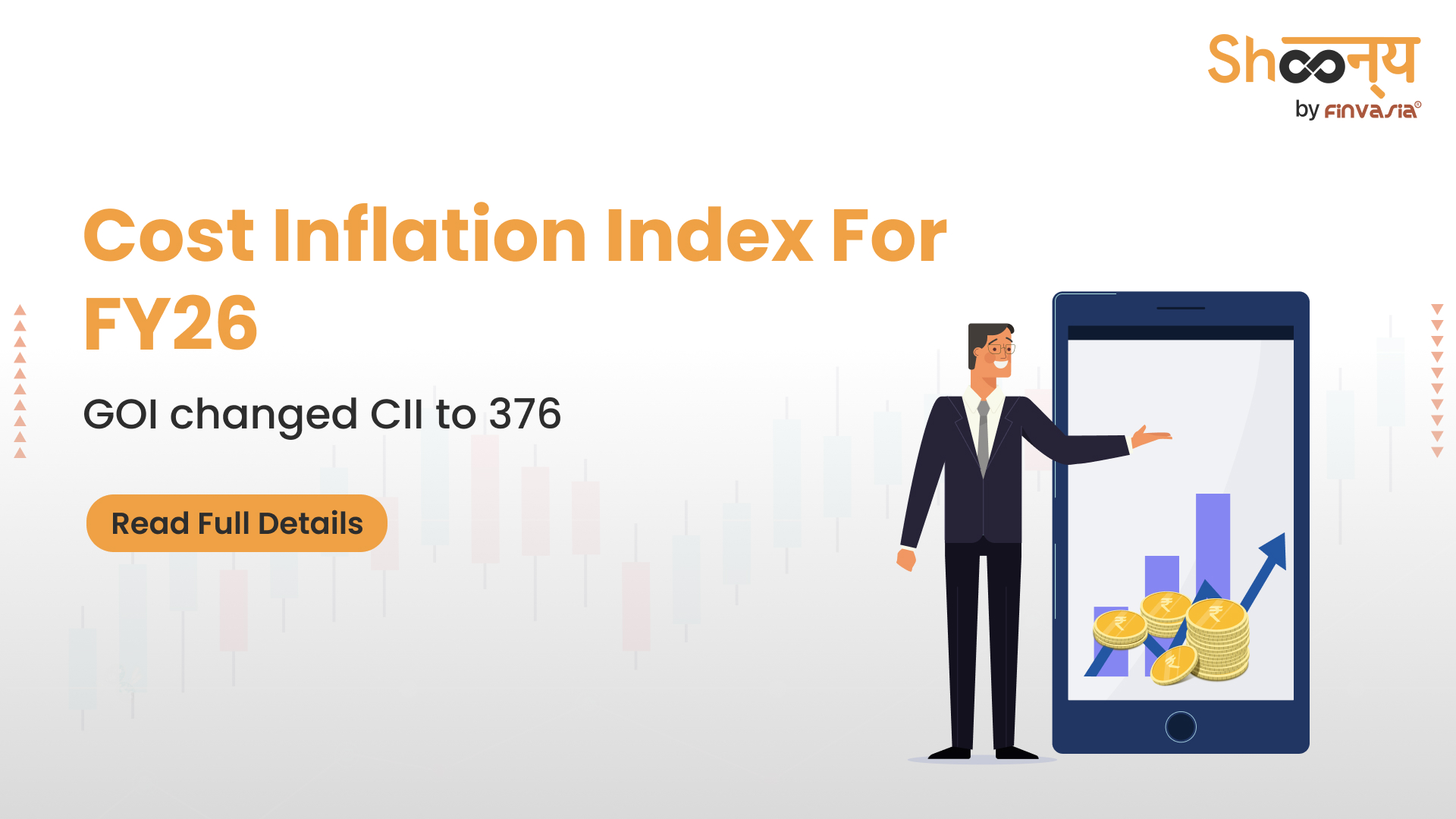Cost Inflation Index: What Is It and Why Is It Important?

Are you planning to sell some shares that you have been holding for the long term? If yes, then in FY26, the Cost Inflation Index (CII) has been changed by the government to 376. You must be wondering, what is this CII, and why is it important for selling long-held shares, aren’t you? So, in this article, we will see how the government has altered the CII for FY26 and how it can impact you.
What is the Cost Inflation Index (CII)? How does it work?
So, let’s begin with what CII is. To understand the entirety of this term, we need to first understand what it means. So, CII is a number that is issued by the Central Board of Direct Taxes (CBDT) in India. This number is used for adjusting the purchase price of certain assets for inflation while deriving long-term capital gains and long-term capital gain taxes (LTCGT).
CII adjusts the cost of the asset to reflect the price rise due to the inflation rate in the country. This adjusted price is known as the indexed price, which is then used for long-term capital gain tax calculations.
Here is an example to understand the same.
Suppose you purchased 10000 shares for ₹10 each in 2010 when the CII was 100.
Today, the indexed price of the shares you hold would be –
Indexed Price = (10000*₹10) * (376/100) = ₹376000
Sales Price = ₹50 per share = ₹50*10000 = ₹500000
Capital Gain = ₹500000 – ₹376000
= ₹124000
Now, the LTCGT has to be paid on ₹124000. However, if indexation doesn’t happen, then the Purchase price will remain = ₹10*10000 = ₹100000
Therefore, the capital gain in that case would be = ₹500000 – ₹100000 = ₹400000.
So, LTCGT has to be paid on ₹400000.
Now this reflects why CII is crucial. Cost Inflation Index helps in charging taxes on the real profit made by the investor for holding the asset for the long term, and not on the price inflation.
Indexation Policy and CII Impact
While Indexation benefit was always available for long-term capital gains, but it was in July 2024, the benefit ceased to exist. As per the Finance Act 2024, which was introduced last year, the government changed the long-term capital gain taxes to 12.5% without indexation benefit.
That said, there is an option to use the indexation benefit for the sale of land and buildings only if the assets have been acquired before 23 July 2024. For other assets, such as shares, gold, and patents, the indexation benefit is no longer available.
Why is this important for an investor?
If you are an investor who is holding stocks for the long term, and this year you are planning to sell them off, then you must consider the fact that there is no more indexation benefit available.
All your capital gains will be used for long-term capital gain tax compilation as per the new LTCGT laws. If you were thinking that you would be able to enjoy the indexation benefit at CII at 376, then you need to reconsider your decision.
Source: CNBC TV18
______________________________________________________________________________________
Disclaimer: Investments in the securities market are subject to market risks; read all the related documents carefully before investing.








